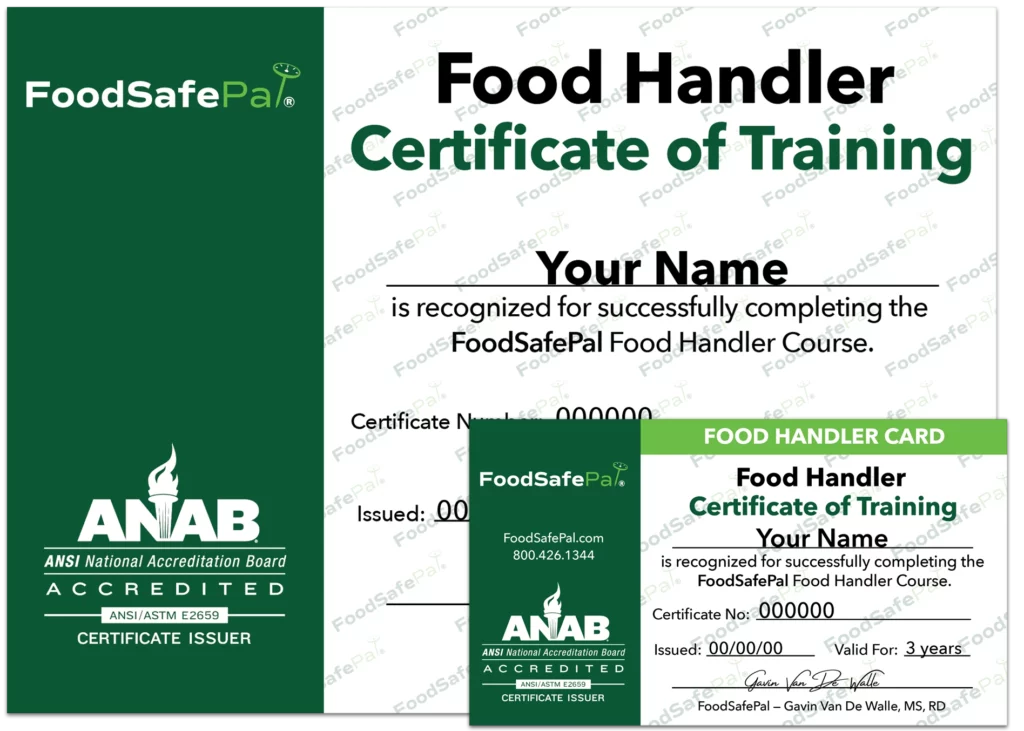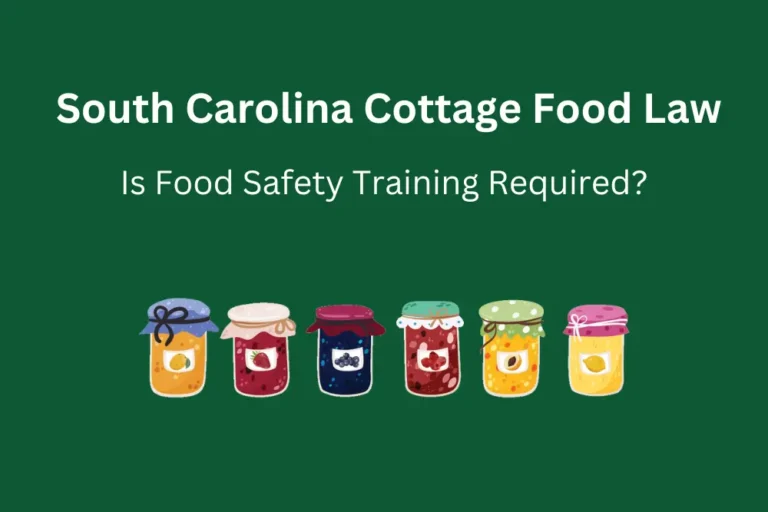Connecticut Cottage Food Law: Food Safety Training Requirements
Cottage food refers to food that you make in your home kitchen and sell directly to people.
Each state has its cottage food law that determines the types of foods you can sell, to whom and how much you can sell, and even how much money you can make each year from the sale of your homemade goods.
Before you can start a cottage food business, many states require that you complete an approved food safety course.
This article discusses the Connecticut cottage food law, and whether you need food safety training to sell homemade food.

Connecticut cottage food production
Connecticut’s cottage food law allows people to make and sell foods that don’t require time or temperature controls (TCS) to keep them safe.
Examples of allowed foods include:
- loaf breads, rolls, and biscuits
- cakes, pastries, and cookies that don’t require refrigeration
- candies and confections
- fruit pies (not pumpkin)
- jams, jellies, and preserves
- dried fruits
- dry herbs, seasonings, and mixtures
- cereals, trail mixes, and granola
- coated or uncoated nuts
- vinegar and flavored vinegar
- popcorn and popcorn balls
- cotton candy
You can sell these foods directly to other people in the state. This includes online but you must still directly deliver the product to people within the state.
Under Connecticut’s cottage food law, you cannot exceed $50,000 in annually revenue from the sale of your homemade goods.
Summary
Under the Connecticut cottage food law, you can sell foods that don’t require time-temperature controls for safety directly to people.
Do you need food safety training to sell homemade food in Connecticut?
To register your cottage food business in Connecticut, you must complete an application.
As part of this application, you must provide proof that you have completed a food safety training course from a recognized provider.
Earn Your Food Handlers Card + Certificate to Sell Cottage Foods
Finish in 90 Minutes. Meets Connecticut’s Cottage Food Law.

FoodSafePal is one of Connecticut’s recognized provider since its Food Handler course is ANSI-National Accreditation Board (ANAB) accredited.
FoodSafePal’s Food Handler course was designed for non-management workers in retail food establishments like restaurants, so some of the content isn’t applicable to cottage food businesses.
However, the course still contains the necessary food safety principles you need to know to safely operate your business and prevent someone getting sick with a foodborne illness from consuming your products.
After you complete the course, you must pass 40 multiple-choice question test. You need to answer at least 28 (70%) of the questions correctly to pass. If you don’t pass the first time, you can review the course and retake the test for free.
Once you pass, make sure to print a copy of your certificate to include in your application.
You must maintain this certificate through the duration of your business by taking another approved course every three years.
Summary
Connecticut’s cottage food law requires the completion of an ANAB-accredited food handler training course — such as FoodSafePal’s — as one of the requirements to operate your cottage food business.
Labeling requirements
Connecticut requires that each product you sell is properly labeled with the following information:
- name and address of your cottage food business
- name of the cottage food product
- a list of the ingredients in descending order of predominance by weight (you must list out the ingredients if you use prepared items like soy sauce)
- the net weight or volume (with metric equivalent)
- labeling of any major food allergen
- the statement in at least ten-point type, “Made in a Cottage Food Operation that is not Subject to Routine Government Food Safety Inspection.”

Use food-grade material to package your baked goods to avoid contamination.
Summary
Connecticut requires that you label each product with certain information, such as the name and contact information of your cottage food business, ingredients, and the presence of any major food allergen.
The bottom line
Under Connecticut’s cottage food law, you can make food in your personal home kitchen that doesn’t require time or temperature controls for safety and sell it directly to people living in the state.
To operate a cottage food business in Connecticut, you must first complete an approved food safety training course, like the one offered by FoodSafePal.
Earn Your Food Handlers Card + Certificate to Sell Cottage Foods
Finish in 90 Minutes. Meets Connecticut’s Cottage Food Law.

After you complete the course and pass the test, you’ll automatically be issued a certificate that you must provide with your application for approval.
Don’t forget to label your products with the necessary information and package them using food-grade material.






